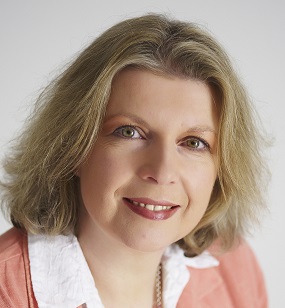
Supplements for Over 50s
By medical nutritionist Dr Sarah Brewer, an expert in food, herbs and supplements
Reaching the milestone age of 50 is a good time to review your supplement needs as many are especially important in later life.
Multivitamins for general health
While diet should always come first, we tend to eat less with age, especially when cutting back to lose weight. At the same time, our ability to absorb nutrients decreases as we make less stomach acid and intestinal enzymes, and make less vitamin D in our skin when the sun shines. A multivitamin and mineral supplement is therefore a good idea. Select one designed for over 50s. You can download my free guide, Do You Need A Multivitamin? from https://drsarahbrewer.com/free-resources
Fish oils for heart and brain
We are all advised to eat at least two portions of fish per week, of which one is oily (eg. salmon, mackerel, herring, sardines). Few of us actually achieve this, in which case you should consider taking a fish oil supplement. These supply long-chain omega-3s (DHA and EPA) which help to damp down inflammation, protect against unwanted blood clots, and protect against abnormal heart rhythms. Omega-3s are also important for a healthy brain and regulating mood.
Evening primrose oil for skin
Evening primrose oil supplies a fatty acid called GLA which helps make skin cells more supple, improving hydration, softness, luminosity and elasticity. It reduces skin itching, flaking and dryness as well as plumping out wrinkles and reducing skin mottling. While it is often viewed as a female supplement, men will gain benefits, too.
Vitamin K2 for your arteries
Vitamin K comes in two main forms – K1 from plants (eg. cauliflower, broccoli) and K2 which is obtained from liver, egg yolk, meats, cheese and fermented foods such as yogurt and natto. Most (90%) of our dietary vitamin K is in the form of vitamin K1 which is used by the liver to make clotting proteins. Only around 10% is in the form of vitamin K2 which is needed to guide calcium away from artery walls and into the bones. As well as protecting against osteoporosis, vitamin K2 helps to guard against the hardening and calcification of the arteries to help protect against heart attack and stroke. While you can convert excess vitamin K1 to vitamin K2, this does not happen with dietary vitamin K is in short supply, so look for supplements that provide vitamin K2 rather than vitamin K1.
Ubiquinol for energy
As we get older, our cells make less of an important substance called coenzyme Q10 which is needed for energy production – especially within the heart and other major organs. Coenzyme Q10 supplements are available in two main forms, of which the best for older peoples is the active, body-ready ubiquinol. Ubiquinol is especially helpful if you feel fatigued and lacking in energy. It’s also important if you are taking a statin drug which, as well as lowering cholesterol, also switches off coenzyme Q10 production which may contribute to statin-related muscle symptoms.
Magnesium for your heart
Magnesium is an important mineral that is often lacking in the diet. While it is found in dark green leaves, beans, fish, nuts, seeds, dried fruit and wholegrains, some of it is stripped out during processing. Magnesium has many roles in the body – it strengthens bones, and relaxes muscles and arteries to lower blood pressure and protect against abnormal heart rhythms. It also helps to reduce muscle fatigue, cramps, restless legs and insomnia, as well as constipation. NB Check the level of magnesium in your multivitamin as you may not need more.
Calcium and vitamin D for bones
Calcium and vitamin D, as well as magnesium, are needed for strong bones and to protect against osteoporosis (brittle bones). The best way to obtain calcium is to have the equivalent of a pint of semi-skimmed milk per day, but if you are cutting back on dairy products, or if osteoporosis runs in your family, you may need a calcium supplement. Vitamin D is needed to absorb calcium and also helps to boost immunity. Although you make some vitamin D in the skin when the sun shines, the ability to synthesise vitamin D in the skin falls by at least half between the ages of 20 to 80 years – often more, so a vitamin D supplement is important all year round.
A bout Dr Sarah Brewer
bout Dr Sarah Brewer
Dr Sarah Brewer is a medical nutritionist and an expert in food, herbs and supplements. She qualified from Cambridge University with degrees in natural sciences, medicine and surgery. After working in general practice, she gained a master’s degree in nutritional medicine. Sarah is a licensed medical doctor, a registered nutritionist and a registered nutritional therapist.
Subscribe to her newsletter to get a FREE 46-page PDF Do You Need A MultiVitamin? at nutritionupdates.subscribemenow.com.
For more information on diet and supplements, visit Dr Sarah Brewer’s websites at www.DrSarahBrewer.com, www.ExpertHealthReviews.com and www.MyLowerBloodPressure.com.